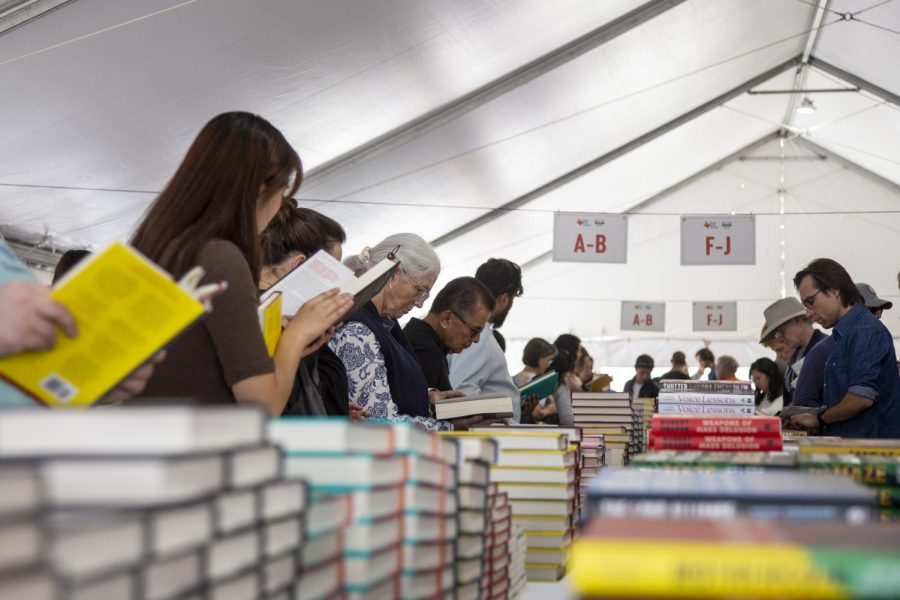Annual Texas Book Festival returns to Austin, attendees reflect on its importance
November 8, 2022
The annual Texas Book Festival took place from Nov. 5-6 in downtown Austin around the Texas State Capitol, and featured authors, book signings, informational panels and book displays. Readers of all ages attended.
The festival was started in 1995 by Laura Bush and Mary Margaret Farabee to honor Texas authors and share the benefits of reading while promoting local libraries and new books of the year, according to the Texas Book Festival official website. Festival attendee Elena Welsh said the community they get from the festival helps them stay connected with other readers.
“There’s something really important about the community you get when it comes to stuff like this (and) … meeting random people,” Welsh said. “That’s very valuable because reading can be a very isolating thing.”
Destiny Birdsong, author of three-part novel “Nobody’s Magic,” said that as a Black woman with albinism, sharing her personal stories through her work allows her to speak to audiences she wished she would’ve seen as a child.
“Being able to tell the stories that I know and that I want to tell and having audiences for them … is rewarding,” Birdsong said. “For me, the work is always political, it’s always cultural (and) it’s always a labor of love.”
Throughout the country and the state, many school administrators and religious and conservative groups are banning books in public schools for topics deemed inappropriate for students and teaching, according to The Texas Tribune. Texas banned more books in 2022 than any other state, with 801 books banned across 22 school districts. Books on Roe v. Wade, gender and sexual orientation and race have faced scrutiny from school districts.
Event volunteer Michelle Beebower said highlighting books with potentially banned topics is important for the authors and readers to combat the stigma created around these important issues.
“Bringing awareness (is important), and letting people know about books that are out there they might want to read that may be banned across states,” Beebower said. “Giving them that access that they might not have wherever they’re from (is important).”
Remica Bingham-Risher, author of “Soul Culture: Black Poets, Books, and Questions That Grew Me Up,” said in light of the recent book bans, her job as an author is to give underrepresented groups a voice through her writing and experiences, and that now, it is more important than ever to do so.
“Who are the audiences we’re writing for that never get to see themselves?” Bingham-Risher said. “Those are often the books that are being banned.”
By highlighting books on topics previously banned, Bingham-Risher said the festival brings readers together and represents the work done by these authors.
“This is tremendous,” Bingham-Risher said. “Something of this size that brings people together to talk about books … just seeing art on this scale and being supported by a whole community is tremendous.”



